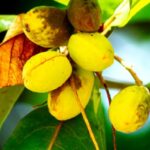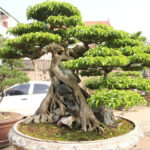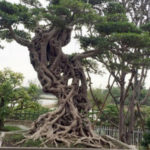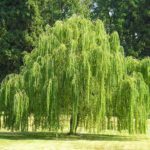The banyan tree, scientifically known as Ficus racemosa, belongs to the mulberry family. It is predominantly found in tropical and subtropical regions, especially near ponds, lakes, rivers, and streams.
The banyan is a tall tree, growing to heights of 20-30 meters at maturity. Its bark is a brownish-gray color and smooth to the touch. The smaller branches are brown, and the tree has many of these sprouting from its trunk.
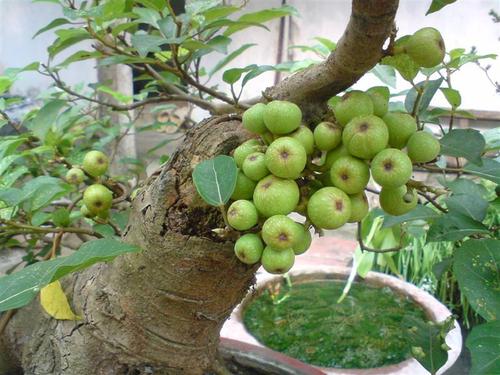
The banyan tree, scientifically known as Ficus racemosa, belongs to the mulberry family.
Commonly referred to as the banyan, this tree is also known as the cluster fig or the Indian fig. In the wild, banyan trees are often found near bodies of water, including ponds, lakes, and streams.
The fruits of the banyan grow from the base to the top of the tree and are found in clusters on the branches, trunk, and larger limbs. When ripe, they sport a reddish-brown color, with a coating of fine hair, and have very short stems.
Banyan tree leaves are a deep green and are shaped like lance heads, with a pointed tip and a slightly rounder base. The margins of the leaves are serrated. According to traditional medicine, the fruits of the banyan tree offer a plethora of benefits for the digestive system, including treating inflammation, poisoning, diarrhea, dysentery, constipation, hemorrhoids, sore throat, and skin conditions.
In folk feng shui belief, the banyan tree is thought to bring good fortune, fulfillment, warmth, prosperity, and completeness to the homeowner.
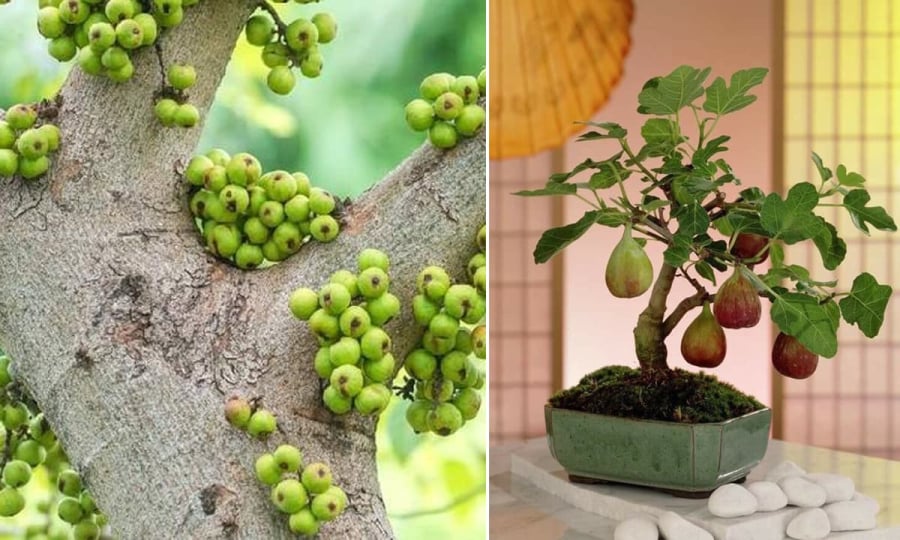
Bonsai banyans are also popular as they are shorter, don’t take up much space, and can be shaped into beautiful forms.
The image of banyan fruits growing in dense clusters evokes a sense of abundance, a large family, and thriving business ventures for the homeowner.
For this reason, the banyan tree is often chosen to be planted in front of or within residential gardens, office spaces, and business premises to attract luck and success for their owners.
In addition to the regular-sized banyan, there is also the bonsai variety, which is shorter and doesn’t take up as much space. This variety can also be shaped into beautiful forms.
There are several types of banyan trees, including the American banyan, wild banyan, sweet banyan, mulberry banyan, and glutinous and non-glutinous banyan.
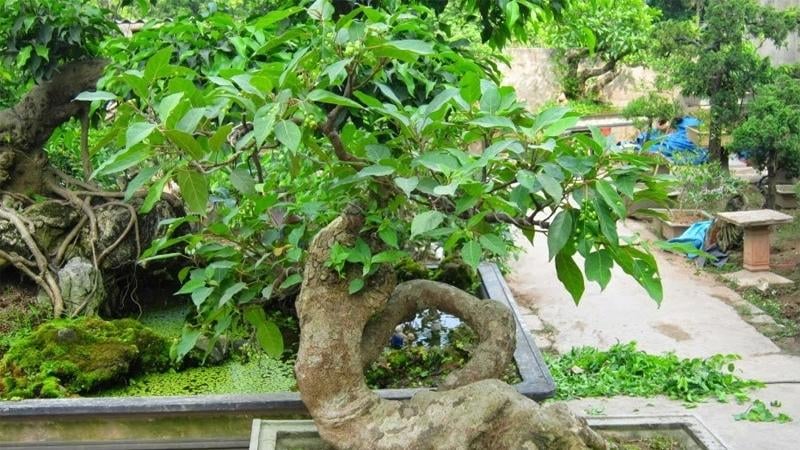
Overall, homeowners can choose any type of banyan tree, as long as it suits their home and garden space.
The American banyan, also known as the strangler fig, is another popular variety that grows to a height of about 6 meters. Its fruits grow directly from the trunk, similar to pears, and are highly nutritious. This variety is often cultivated as an ornamental tree or for its edible fruits.
Overall, homeowners can choose any type of banyan tree, as long as it suits their home and garden space. It is worth noting that experts suggest planting the banyan tree on either the left or right side of the main entrance. The left side is believed to be advantageous for energy absorption, while the right side is associated with growth and success. The choice between the two ultimately depends on the homeowner’s personal preferences and goals.
The Art of Bonsai: A Guide to Mastery.
Do you know the unique characteristics, care requirements, and Feng Shui significance of the Vietnamese Banyan? This ancient and revered tree holds a special place in Vietnamese culture and is known for its exquisite beauty. Discover the secrets of this iconic tree and unlock the mysteries of its care and cultural importance.
























